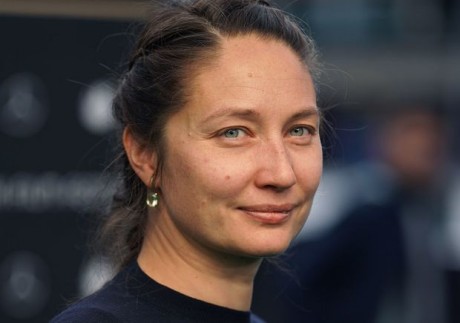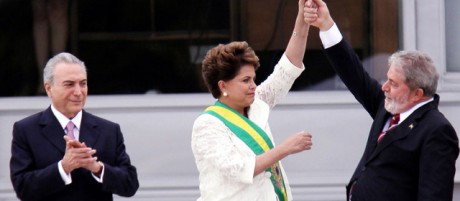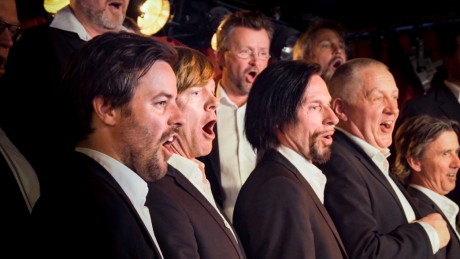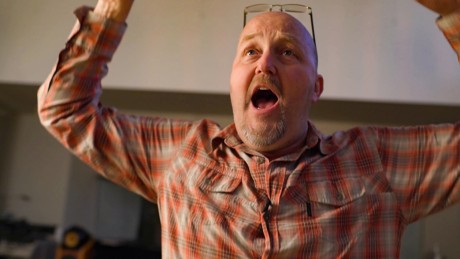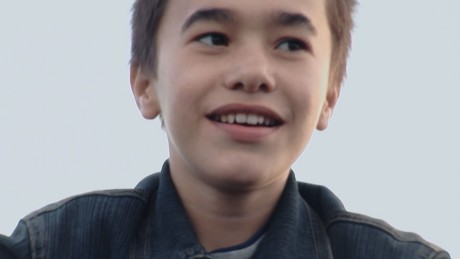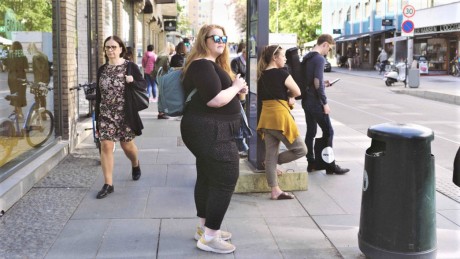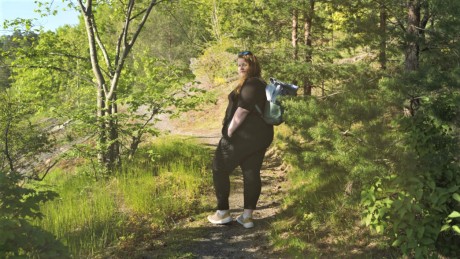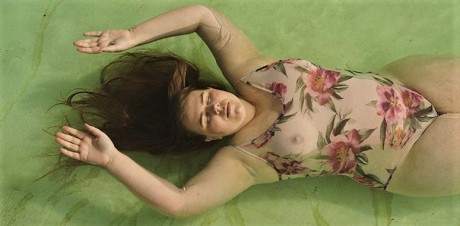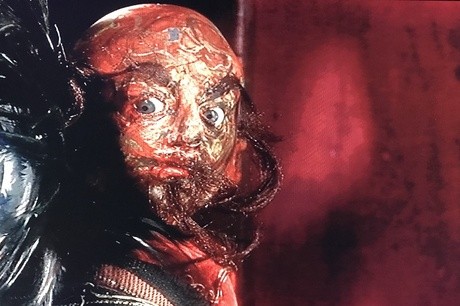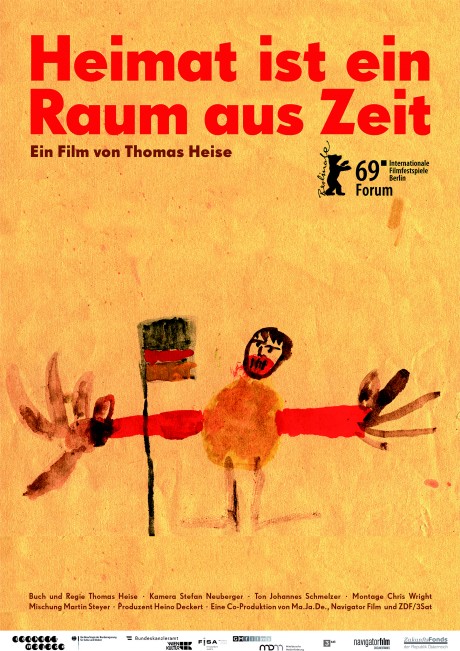Colleague Allan Berg tells me that if he loves a book, when finished he often starts reading it again immediately. My mentor Niels Jensen (who died in 2010) said the same: I often, if I love a film, leaves the cinema and walks in again to have a ticket for the next screening. Jensen, who also left a screening if he found the film boring and/or without quality… Why stay till the end?
I would have loved to watch Thomas Heise’s film essay again right away. But I will wait for the second screening to be on a big screen, in a cinema, if not before (DOK Leipzig?) then at IDFA in Amsterdam. I want the full cinema screen with its image and sound as it was thought from the director’s side.
There is so much I want to (re)discover, so many cinematic decisions that are far from main-stream documentary storytelling.
With the whole overall ambition, to take the viewer through the history of a family, through generations from the beginning of the 20th century till today. What an ambition and what an original and succesful result!
Like a written biography it is a film in 5 chapters, indeed a piece of literature
in itself as much as it is an aesthetically balanced visual interpretation with the voice of the director reading letters, diaries, presenting documents, and let me not forget the muted tone, never pushy, never overwhelming, but always there in the background together with the eloquent voiceover.
I want to point at some of the sequences in the 1st chapter of the film – the chapter lasts one hour. Masterly montaged sequences.
The first chapter that is world history (the first WW) seen by Wilhelm Heise, the grandfather of the director, who writes as a young man about War:
„Hand in hand with the spiritual degeneration comes the decline in ethic and morals“ … slowly emerges a photo of three soldiers posing for the camera… “Man‘s bestial nature celebrates its highest triumphs…“
Read by Thomas Heise with his voice that captures your attention here and through the film because of its kind-of-neutral character, even when the most terrible events are coming up, it stays like this – the effect is emotional strong.
But this first chapter is also a love story… between Wilhelm Heise, who lives in Berlin and Edith Hirschorn, whose family lives in Vienna. The letters are beautiful, read by Heise, while you look through a rainy window of a tram of today’s Vienna, hearing in between the automatic voice of „next station“! And hear some passenger voices and the tram’s rail music…
Edith writes a recipe. „Give it to your mother”.
And while Edith is back in Vienna, Wilhelm writes: „Just come and things will be different… in recent days I’ve been imagining this: I am sitting on the balcony and reading. Sometimes I look up. You sit at the other end of the balcony. Sometimes you also look up. We look at each other and smile…”. Yes, that’s how love is. Also in my sitting room today.
B/W images of today accompanying: U-Bahn in Berlin, a young couple hugs each other – Heise reads a letter from Max and Anna Hirschorn in Vienna telling Dr. Wilhelm Heise that they would welcome him in Vienna to become their son-in-law, the wife of their daughter Edith. (The U-Bahn scene also a ”first love scene” as the director remembers it? The film has many layers).
The sound of trains, the image of flowers in the foreground and train passing in the background, family photos of the couple with two children, Hans and Wolf(gang).
Back to historical documents, names written, Jews on lists for deportation, Heise reads the correspondance between Vienna and Berlin. ”Vater und Opa” Max Hirschhorn writes, so does Edith’s sister Elsa, about daily things, hard days and about the transport to Poland that becomes more and more actual. ”Why do we have to live in these times”. Where the Jews are not allowed to ride buses, can not get good tobacco any longer (Max complains about this), where certain areas are not good to stay in.
Montaged with around 20 minutes visual documentation – nazi deportation lists with Heise reading the correspondance. You read all these Jewish last names, you have met them on other occasions, it becomes painful as you know the fate waiting for them.
From an aunt: “July 23. Dear Edith. Thank you for everything. Best regards to you all. Farewell. I’m travelling today. Pepita» – and you read the name on the document underligned with red: Finkel Perl Josefine Sara, 2 Körnerg. 7/15, 13.10.76, the latter her date of birth.
«Travelling today» – as the other members of Edith’s family «to Poland».
Cut to (the lyrics of) a popular song, performed by Marika Rökk during Nazi time, «Don’t look here, don’t look there – Just look straight ahead – And whatever may come – Just never mind». Sarchasm, Irony from the side of the director?
Leaving the deportation lists… long black break before Heise comes back with the personal resumé of Wolfgang Heise, the son of Wilhelm and Edith, who is a Wehrmacht soldier, like his brother Hans, writing from a barrack during the last years of the war. Words to the parents in Berlin – hope all is well.
Montaged with images from today in Eastern Germany: empty houses, forgotten nature if that is the right wording, everything is left behind, left overs, sad images, no hope and windmills that continue to move slowly, the flow of history as Wolfgang Heise mentions, not to stop.
Some steps into the first chapter, I will do the same later with the fifth chapter of this magnificent documentary reflection of a space in time.



